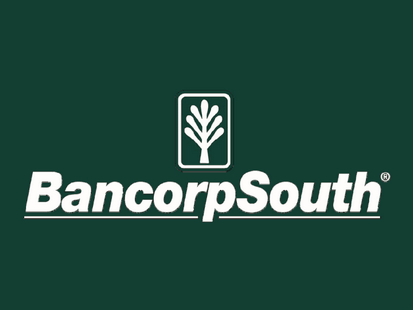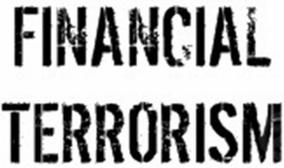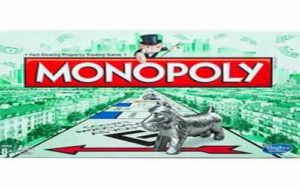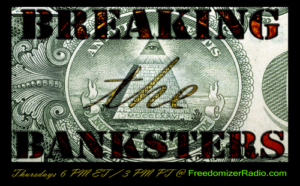The dictionary defines capitalism as “an economic system characterized by private or corporate ownership of capital goods, by investments that are determined by private decision, and by prices, production, and the distribution of goods that are determined mainly by competition in a free market.” While the Bible doesn’t mention capitalism by name, it does speak a great deal about economic issues. For example, whole sections of the book of Proverbs and many of the parables of Jesus deal with economic matters. As such, we learn what our attitude should be toward wealth and how a Christian should handle his finances. The Bible also provides us with a description of our human nature which helps us to evaluate the possible success of and failure of an economic system in society.
Because economics is an area where much of our everyday life takes place, we should evaluate it from a biblical perspective. When we use the Bible as our framework, we can begin to construct the model for a government and an economy that liberates human potential and limits human sinfulness. In Genesis 1:28, God says we are to subdue the earth and have dominion over it. One aspect of this is that humans can own property in which they can exercise their dominion. Since we have both volition and private property rights, we can assume that we should have the freedom to exchange these private property rights in a free market where goods and services can be exchanged.
However, due to the ravages of sin, many parts of the world have become places of decay and scarcity. And, though God has given us dominion over His creation, we must be good stewards of the resources at our disposal. Historically, the free enterprise system has provided the greatest amount of freedom and the most effective economic gains of any economic system ever devised. Even so, Christians often wonder if they can support capitalism. In essence, self-interest is rewarded in a free capitalist system. But even the gospel appeals to our self-interest, because it is in our self-interest to accept Jesus Christ as our savior so that our eternal destiny will be assured.
From a Christian perspective, the basis of private property rests in our being created in God’s image. We can make choices over property that we can exchange in a market system. But sometimes the desire for private property grows out of our sinfulness. Correspondingly, our sinful nature also produces laziness, neglect, and slothfulness. The fact is that economic justice can best be achieved if each person is accountable for his own productivity.
Historically, capitalism has had a number of advantages. It has liberated economic potential. It has also provided the foundation for a great deal of political and economic freedom. When government is not controlling markets, then there is economic freedom to be involved in an array of entrepreneurial activities. Capitalism has also led to a great deal of political freedom, because once we limit the role of government in economics, we limit the scope of government in other areas. It is no accident that most of the countries with the greatest political freedom usually have a great deal of economic freedom.
However, Christians cannot and should not endorse every aspect of capitalism. For example, many proponents of capitalism hold a view known as utilitarianism, which is opposed to the notion of biblical absolutes. Certainly, we must reject this philosophy. Also, there are certain economic and moral issues that must be addressed. Though there are some valid economic criticisms of capitalism such as monopolies and the byproduct of pollution, these can be controlled by limited governmental control. And when capitalism is wisely controlled, it generates significant economic prosperity and economic freedom for its people.
One of the major moral arguments against capitalism is greed, which is why many Christians feel unsure about the free enterprise system. Critics of capitalism contend that this system makes people greedy. But then we must ask whether capitalism makes people greedy or do we already have greedy people who use the economic freedom of the capitalistic system to achieve their ends? In light of the biblical description of human nature (Jeremiah 17:9), the latter seems more likely. Because people are sinful and selfish, some are going to use the capitalist system to satisfy their greed. But that is not so much a criticism of capitalism as it is a realization of the human condition. The goal of capitalism is not to change bad people but to protect us from them. Capitalism is a system in which bad people can do the least harm and good people have the freedom to do good works. Capitalism works best with moral individuals. But it also functions adequately with selfish and greedy people.
It’s important to realize that there is a difference between self-interest and selfishness. All people have self-interests which can operate in ways that are not selfish. For example, it is in our self-interest to get a job and earn an income so that we can support our family. We can do that in ways that are not selfish. By contrast, other economic systems such as socialism ignore the biblical definitions of human nature. As a result, they allow economic power to be centralized and concentrate power in the hands of a few greedy people. Those who complain of the influence major corporations have on our lives should consider the socialist alternative where a few governmental bureaucrats control every aspect of our lives.

Investors sentiment is 0 in 2018 Q4. Its the same as in 2018Q3. It has no change, as 0 investors sold BancorpSouth Bank shares while 0 reduced holdings. only 0 funds opened positions while 1 raised stakes. 19,260 shares or 101.27% more from 9,569 shares in 2018Q3 were reported.
Gemmer Asset Management Ltd holds 0% of its portfolio in BancorpSouth Bank (NYSE:BXS) for 130 shares. Fruth Investment reported 0.12% stake.
The stock of Bancorpsouth Bank (NYSE:BXS) registered a decrease of 2.38% in short interest. BXS’s total short interest was 4.93 million shares in April as published by FINRA. Its down 2.38% from 5.05M shares, reported previously. With 609,800 shares average volume, it will take short sellers 8 days to cover their BXS’s short positions.
The stock increased 1.44% or $0.44 during the last trading session, reaching $30.89. About 283,429 shares traded. BancorpSouth Bank (NYSE:BXS) has risen 1.65% since April 29, 2018 and is uptrending. It has underperformed by 2.72% the S&P500.
BancorpSouth, Inc. operates as a financial holding firm for BancorpSouth Bank that provides commercial banking and financial services to individuals and small-to-medium size businesses. The company has market cap of $3.06 billion. It offers various deposit products, including interest and noninterest bearing demand deposits, and saving and other time deposits. It has a 13.98 P/E ratio. The firm also provides commercial loans, including term loans, lines of credit, equipment and receivable financing, and agricultural loans; a range of short-to-medium term secured and unsecured commercial loans to businesses for working capital, business expansion, and the purchase of equipment and machinery; and construction loans to real estate developers for the acquisition, development, and construction of residential subdivisions.
More notable recent BancorpSouth Bank (NYSE:BXS) news were published by: Seekingalpha.com which released: “BancorpSouth Bank (BXS) CEO Dan Rollins on Q1 2019 Results – Earnings Call Transcript – Seeking Alpha” on April 18, 2019, also Seekingalpha.com with their article: “Quality Over Quantity Paying Off For Regions Financial – Seeking Alpha” published on July 26, 2018, Seekingalpha.com published: “BancorpSouth completes merger with Icon Capital – Seeking Alpha” on October 01, 2018. More interesting news about BancorpSouth Bank (NYSE:BXS) were released by: Prnewswire.com and their article: “BancorpSouth Launches Tax Credit Department – PR Newswire” published on October 15, 2018 as well as Fool.com‘s news article titled: “BancorpSouth (BXS) Q4 2018 Earnings Conference Call Transcript – Motley Fool” with publication date: January 25, 2019. Source

StevieRay Hansen
Editor, Bankster Crime
MY MISSION IS NOT TO CONVINCE YOU, ONLY TO INFORM…
#Fraud #Banks #Money #Corruption #Bankers
“Have I therefore become your enemy by telling you the truth?”
![]()




